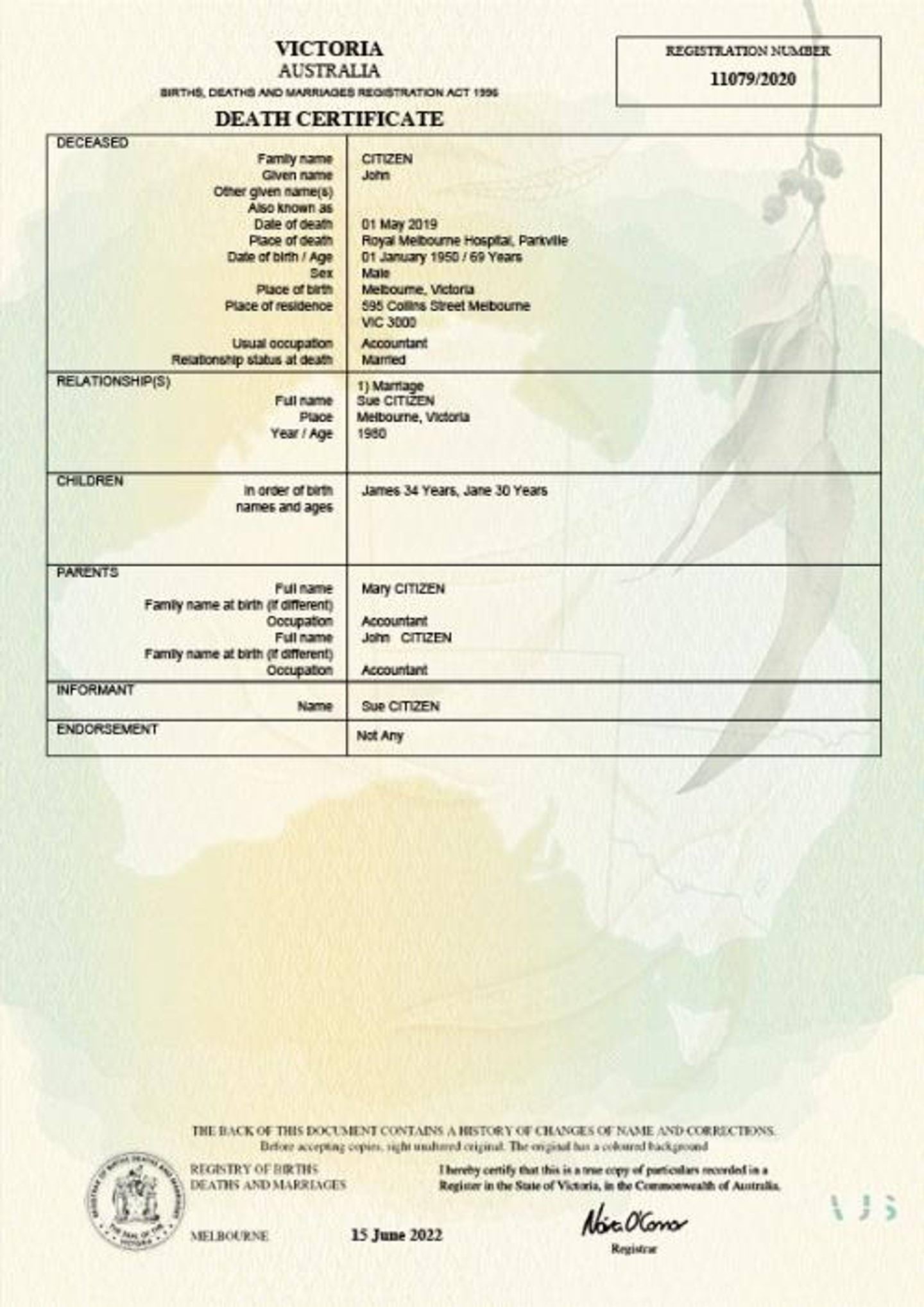Understanding Death Certificates and Their Importance
A death certificate is an official document that formally registers someone’s death with the appropriate government agency in their state or territory. This certificate is essential for managing the deceased person’s estate and handling other legal and financial matters.
Medical Certificate of Cause of Death vs. Death Certificate
When a person dies, a doctor will complete a Medical Certificate of Cause of Death (MCCD), which notes the cause, date, time, and location of death. This certificate is critical, as it records the cause of death and is needed to proceed with the death registration.
If the circumstances surrounding the death are unusual, unexpected, or difficult to determine, authorities may need to investigate further, with the doctor or a coroner involved. The MCCD acts as a medical record, while the death certificate serves as the formal proof of death necessary for the estate’s administration.
The Process of Obtaining a Death Certificate
After the MCCD is issued, funeral arrangements can be made. However, a death certificate can only be obtained once the death is officially registered with the Registry of Births, Deaths, and Marriages. Generally, the funeral director will handle this process, but next of kin or other authorized persons can apply if a funeral director is not involved.

Applying Through a Funeral Director
Most families work with a funeral director, who typically submits the death registration and applies for a death certificate on the family’s behalf. This service is often prioritized, helping to ease the administrative burden during an emotional time.
Self-Application
If you are not using a funeral director, you can directly register the death and apply for a certificate through the state or territory’s Registry of Births, Deaths, and Marriages. You’ll need detailed information about the deceased, including their full name, birth and death details, residential address, marital status, and other relevant family information.
Eligibility and Timelines for Receiving a Death Certificate
In most Australian states and territories, a death certificate is issued within a few weeks of a registered application, although processing times can vary. An expedited service may be available if the certificate is urgently needed, though postal delays may affect delivery times if the certificate is mailed.
Typically, only close relatives, legal representatives, or others with an authorized relationship to the deceased can apply for a death certificate. Online resources and forms are available through the relevant Registry of Births, Deaths, and Marriages for each state or territory, making it possible to apply in person, online, or by mail.
